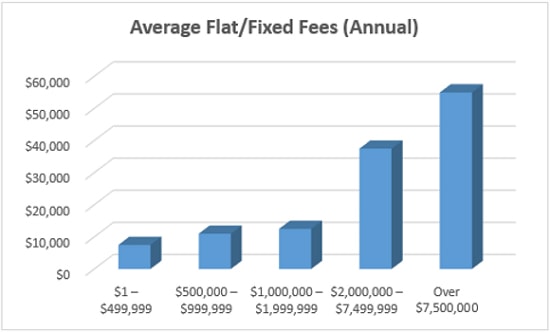
An entry-level position in consulting has many benefits. You can enjoy the perks of your job, such as being able to book your favourite boutique hotel or attending all-expenses-paid retreats. These benefits are numerous and can help you start a new career or upgrade an existing one. Below are some of the most important benefits of consulting work. Read on to learn more about entry-level jobs in consulting.
Qualifications
While certain qualifications are more desirable to employers than others, experience is what makes you stand out. This includes experience in business, team building, and analytical thinking. Experience in various business areas, as well as an understanding of financial system will prove useful. Entry level jobs in consulting do not require any commercial experience. Graduates with high GPAs are more likely be hired by more senior professionals.
Entry-level consultants often have extensive business experience and will not only hold a professional qualification. A majority of consultants have attended a graduate-level training program in a large blue-chip firm. Entry-level jobs will be offered to candidates with a wide range of experience. Here are some additional qualifications required for entry-level consultant positions. These requirements should be understood by applicants.

Career path
If you've always dreamed of working in consulting, you can now begin your search for an entry-level position. You have many options and benefits when you apply for entry-level consulting jobs. Consulting jobs offer a wide range of work and allow for extensive growth. Consultants must be able to market to consumers and understand how to increase revenue while decreasing costs. After they have acquired these skills they can take on other roles within their company. Many entry-level consulting jobs are available. Once you graduate from college, you may be able to start working for a customer.
Generally, an analyst will have one to two years of experience and enter the consulting industry at the Associate Consultant or Business Analyst level. An MBA or advanced degree-holder can have the experience required to enter the consulting business at a higher level. But this is rare. Associates usually enter the industry at the Associate Consultant level, where they can work toward senior positions. If you are just starting out, you could also consider a career with management consulting.
Compensation
There are many ways you can negotiate compensation for entry-level consulting jobs. Many firms offer high salaries to recruit the best people and keep them. Some firms offer sign-on incentives to encourage top-performing consultants to stay. Others may require sign-on bonuses in return for a sign-on bonus. Before accepting a job, ensure you carefully review the details of the compensation. Most entry-level jobs are offered by consulting firms that set their compensation packages.
If they are lucky, a consultant in their first year can make more than $60,000 These salaries are comparable to those in middle-class jobs. But consultants may earn only a few thousand dollars per annum, as they work long hours. Even if the job you are starting with is high-paying, you'll likely have to work long hours. However, this can be compensated by performance bonuses that can be worth as much as 25 percent to 30 percent of your base salary.

Hourly rate
The hourly rate in consulting can vary greatly depending on which firm you are working for. At Big 4 consulting firms, hourly rates may start at $350 and rise to $1,000, and entry-level consultants often work for partners. Smaller boutique firms will have a blend of resources, with hourly rates between $250 and $400. An hourly rate for independent management consulting firms is typically between $100 and $250. In this article, we'll discuss the different types of consulting and the hourly rate.
BCG consultants can earn as much as $161,000. This includes a $165,000 salary base, $41,500 bonus and $9,000 profit sharing. Other developed countries have slightly higher salaries, with Pakistan even with the UK and Russia. In India, the hourly rate is as low as $4. Bain & Company could pay as little as $15 an hour for entry-level consultant positions.
FAQ
Is it possible to be a consultant?
A consultant is someone who helps you achieve your goal by providing advice on how to do something better, faster, cheaper, etc.
A consultant may help you solve problems, make decisions, or negotiate with others.
Consultants can be hired to assist with specific tasks or projects.
Consultants are often paid per hour or daily rather than per project.
What skills are necessary for consulting?
An effective consultant must have strong interpersonal skills as well as analytical skills. This is essential because you will be working on projects that you don't know the details of. You will need to learn how you manage people and solve problems quickly.
You also need to have excellent communication skills. Most clients expect a reply within 24 hours. If they don't hear anything, it is likely that they aren't interested in you. It's crucial to keep them informed and make sure they understand everything.
How much should a consultant charge?
It all depends on the service you offer. It doesn't matter if you offer services at no cost. But if your services or products are for sale, you will need to establish prices that reflect their value.
If you offer low-quality services then you don’t have anything for sale. You are not worth anything, so why should anyone pay you anything.
If you're providing high-quality services you might ask for a greater price. Because people are aware of the value you provide, they will be more willing to pay you a higher rate. Clients who purchase multiple packages may be eligible for discounts.
Why would you want to hire consultants?
There are many reasons you might need to hire a consultant.
-
You may have a problem or project that your organization needs to solve.
-
You want to improve or learn new skills.
-
You would like to work with an expert in your field.
-
The task is yours alone.
-
You feel overwhelmed by all of the information out there and don't know where to start
-
You can't afford to pay someone full-time
You can find good consultants by word of mouth. Ask your friends and family if they know of any reliable consultants. If you already know someone who works as a consultant, ask him/her for recommendations.
You can use online directories such as LinkedIn to find consultants in your local area.
Statistics
- My 10 years of experience and 6-step program have helped over 20 clients boost their sales by an average of 33% in 6 months. (consultingsuccess.com)
- According to statistics from the ONS, the UK has around 300,000 consultants, of which around 63,000 professionals work as management consultants. (consultancy.uk)
- On average, your program increases the sales team's performance by 33%. (consultingsuccess.com)
- 67% of consultants start their consulting businesses after quitting their jobs, while 33% start while they're still at their jobs. (consultingsuccess.com)
- So, if you help your clients increase their sales by 33%, then use a word like “revolution” instead of “increase.” (consultingsuccess.com)
External Links
How To
How To Start A Consultancy Company, And What Should I Do First?
Start a Consulting Company to make some extra money from home. You don't have to have any business experience. You can start your own consulting firm by building a website. Once you've built a website, you'll want to use social media platforms such as Facebook, Twitter, LinkedIn, Instagram, Pinterest, YouTube, etc... to get the word out about your services.
You can create a marketing strategy that includes these things with these tools
-
Create content (blogs).
-
Building relationships (contacts)
-
Generating Leads (lead generation forms).
-
Selling products online
Once you have created your marketing strategy you will need to find clients that will pay for it. Some prefer to meet up at networking events or go to meetings, while others prefer to use online platforms like Craigslist, Kijiji, and others. Your choice is yours.
Once you've found new clients, you'll want to discuss terms and payment options. This could include flat fee contracts, hourly fees or retainer agreements. Before you accept a client, you need to know what you expect so that you can communicate clearly all through the process.
Hourly agreements are the most common contract type for consultancy services. This type of contract requires you to provide certain services at fixed rates each week or month. You may be eligible to negotiate a discount, depending on the service that you offer. Before you sign a contract, ensure you understand everything.
Next, create invoices for your clients and send them. Invoicing is one of those things that seems simple until you actually try it. There are many ways that you can invoice your clients depending on what your preferences are. For instance, some prefer their invoices to be emailed directly to clients while others prefer hard copies to be mailed. No matter which method you choose to use, it is important that it works for you.
After you've finished creating invoices, you'll want to collect payments. PayPal is popular because it is easy to use, offers several payment options, and most people prefer it. Other payment processors, like Square Cash or Google Wallet, Square Cash or Apple Pay, Venmo and Venmo are also available.
Once you are ready for payments to begin, you will need to open bank accounts. You can keep separate checking and savings accounts to track income as well as expenses. Setting up automatic transfers into your bank account is also helpful when paying bills.
When you start a consultancy business, it may seem overwhelming, but once you learn how to do it correctly, it becomes second nature. Our blog post contains more information on how to start a consulting business.
Starting a consulting firm is a great way to earn extra cash without worrying about employees. Many consultants work remotely. They don't have any need to deal with office politics, long hours or office politics. Remote employees have more flexibility because they are not bound by regular work hours.